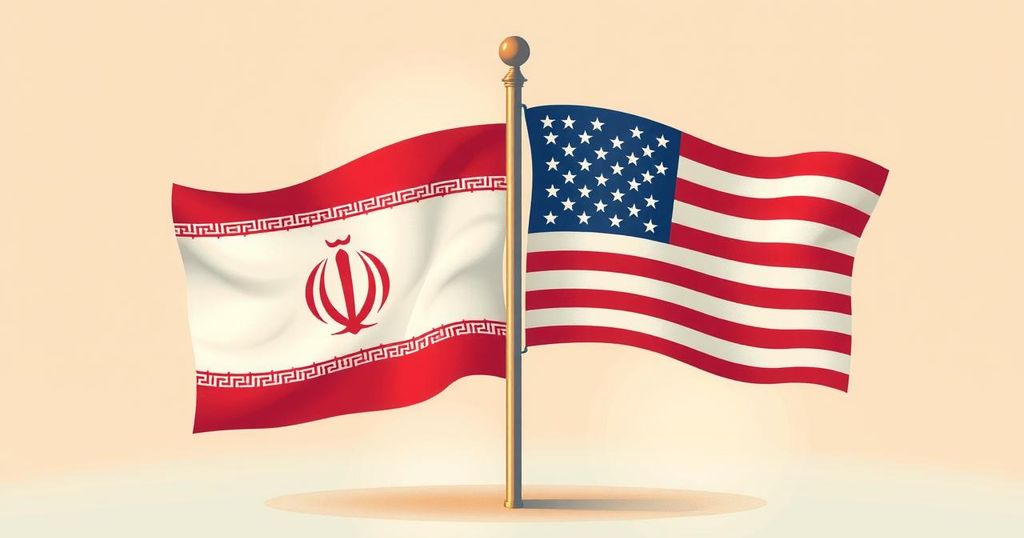Global news
ABBAS ARAGHCHI, AFRICA, ARA, ASIA, EAST, EMIRATES, EUROPE, EUROPE/ASIA, FOREIGN POLICY, INTERNATIONAL RELATIONS, IRAN, ISRAEL, ITALY, LIBYA, MOSCOW, NORTH AMERICA, NUCLEAR POLICY, OMAN, ROME, RUSSIA, SANCTIONS, SERGEI LAVROV, SHAMKHANI, TEHRAN, UNITED STATES, US, US MIDDLE EAST, US-IRAN RELATIONS, WASHINGTON
Isaac Bennett
0 Comments
Iran and U.S. Conclude Constructive Second Round of Nuclear Talks
Iran and the U.S. concluded the second round of nuclear talks in Rome, described as constructive. Focused on Iran’s nuclear program, the discussions aim to establish a timeline for future negotiations and lay groundwork for a new agreement. A third round is scheduled for next Saturday, following concerns from Israeli officials about Iran’s nuclear ambitions.
On Saturday, Iran’s state television reported the successful conclusion of the second round of negotiations between Iran and the United States, held in Rome. These discussions, which commenced on April 12 in Oman, were facilitated by Iranian Foreign Minister Abbas Araghchi and U.S. Middle East envoy Steve Witkoff. Iranian state media characterized the atmosphere as “constructive.”
The central focus of the talks revolved around Iran’s nuclear program, a critical point of contention between Tehran and Western nations. Additionally, the discussions aimed to establish a timeline for future negotiations and potentially set the foundation for a new agreement. A third round of negotiations is scheduled for next Saturday.
Prior to traveling to Rome, Minister Araghchi signaled Iran’s readiness to pursue a peaceful resolution regarding the nuclear dilemma. During a press conference with Russian Foreign Minister Sergei Lavrov, he mentioned that a successful agreement could be achieved if the U.S. approached the negotiations realistically.
Despite the ongoing discussions, Israeli officials have expressed concerns about the progress of U.S.-Iran talks, urging that any agreement must contain firm guarantees against Iran’s development of nuclear weapons capabilities.
On the same day, Ali Shamkhani, a political advisor to Iran’s Supreme Leader Ayatollah Ali Khamenei, confirmed that Iranian negotiators were granted “full discretion” in their discussions. Shamkhani underscored that they were authorized to seek a “comprehensive” agreement based on nine essential principles, including serious commitment, assurance, balance, and the removal of sanctions. He firmly stated, “Iran is there for a balanced agreement, not to surrender.”
The current set of negotiations was prompted by a letter from U.S. President Donald Trump to Ayatollah Khamenei, which called for an opening of discussions between Tehran and Washington. Trump’s unilateral withdrawal from a previous nuclear agreement in 2018 had led Iran to advocate for renewed dialogues regarding its nuclear ambitions, leading to the authorization of indirect negotiations by Ayatollah Khamenei.
In summary, the recent round of negotiations between Iran and the United States has fostered a constructive dialogue aimed at resolving conflicts surrounding Iran’s nuclear program. The negotiations are focused on achieving a balanced agreement, while U.S. and Israeli interests express concerns over ensuring Iran’s nuclear capabilities remain non-threatening. The upcoming discussions are critical as both parties navigate their objectives for a peaceful resolution.
Original Source: shafaq.com




Post Comment